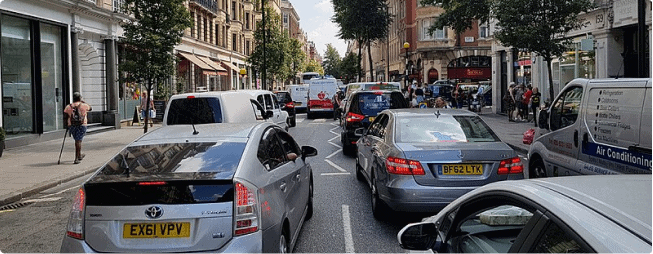Understanding driving legislation, vehicle procedures, and safety measures is critical for African drivers in London who want to drive safely and legally. From license and vehicle registration to road safety and driving innovations, this guide offers insights and practical advice to help Africans traverse London’s roads with confidence and competence.
Licensing and Driver Education
Before hitting the road, Africans must receive a valid driver’s license through suitable licensing procedures and education. Africans in London can apply for a driver’s license through the Driver and Vehicle Licensing Agency (DVLA) and complete driver education and training programs provided by licensed driving schools and instructors.
Vehicle Registration and Inspection
Registration and inspection of cars guarantee that they meet legal and safety norms. Africans in London can register their vehicles with the DVLA and schedule regular checks to ensure roadworthiness and compliance with emission rules.
Traffic Laws and Regulations
Familiarization with traffic laws and regulations is critical for safe and legal driving. Africans might study the Highway Code, which specifies road rules, traffic signs, and driving etiquette in the United Kingdom. Adherence to traffic laws and regulations reduces the likelihood of accidents and violations. Visit the website here.
Driving Safety and Accident Prevention
Prioritizing driving safety and accident prevention is crucial for keeping yourself and others safe on the road. To reduce the likelihood of accidents and injuries, Africans should practice defensive driving, adhere to speed limits, minimize distractions while driving, and maintain their vehicles in good condition. You can learn everything you need to know about defensive driving tactics here.
Eco-Driving and Fuel Efficiency
Promoting eco-driving and fuel efficiency helps to protect the environment while also saving money. Africans can conserve fuel and minimize emissions by practising eco-driving techniques such as gradual acceleration, soft braking, and maintaining constant speeds. Consider driving fuel-efficient vehicles or using alternative fuels for greener mobility.
Driver Resources and Assistance
Accessing driver resources and assistance services offers support and information on a variety of driving-related issues. Africans can learn about licensing, road safety, and vehicle procedures from internet resources, driver handbooks, and official websites. For specialized advice and support, consult with driving instructors, automotive specialists, and community organizations.
Road Condition Alerts and Updates
Staying updated about road conditions and traffic updates allows Africans to manage their trips and avoid congestion or hazards. Use smartphone apps, GPS navigation systems, and traffic information websites to get real-time notifications and updates on road closures, accidents, and construction projects that affect travel routes.
Automotive Services and Repairs
Maintaining vehicle performance and reliability necessitates frequent service and repairs by trained automotive technicians. Africans may find reliable automobile service centres, garages, and technicians who provide routine maintenance, repairs, and diagnostic services for a variety of car makes and models.
Insurance and Legal Matters
Securing adequate insurance coverage and recognizing legal responsibilities are critical components of vehicle ownership and operation. Africans should purchase comprehensive insurance policies that adequately protect their automobiles and liabilities. Also, familiarize yourself with legal issues like liability regulations, insurance requirements, and accident reporting procedures.
Driving Innovations and Future Trends
Keeping up with driving advancements and future trends in automobile technology improves driving enjoyment and safety. Africans may learn about developments like self-driving cars, electric vehicles, connected vehicle technology, and smart transportation systems that are changing the future of driving in London and beyond.
What to Look Out For
- Obtain a UK driving license or exchange your international license if eligible, as driving without one is illegal.
- Familiarize yourself with driving on the left side of the road, which may be different from what you’re used to.
- Be aware of congestion charges and Ultra Low Emission Zone (ULEZ) fees when driving in central London.
- Understand the rules around parking, as many areas require permits or have restricted hours.
- Use apps or maps for real-time traffic updates, as London roads can be congested, especially during peak hours.
- Learn the road signs and speed limits, which are often strictly enforced with speed cameras.
- Consider using public transport for shorter trips, as London’s extensive network is often quicker and more affordable than driving.
- Explore car-sharing schemes and ride-hailing services as alternative transportation options.
- Make sure your vehicle meets the necessary insurance, MOT, and tax requirements to avoid penalties.
- Practice patience and caution when navigating busy roads, roundabouts, and pedestrian-heavy areas.

